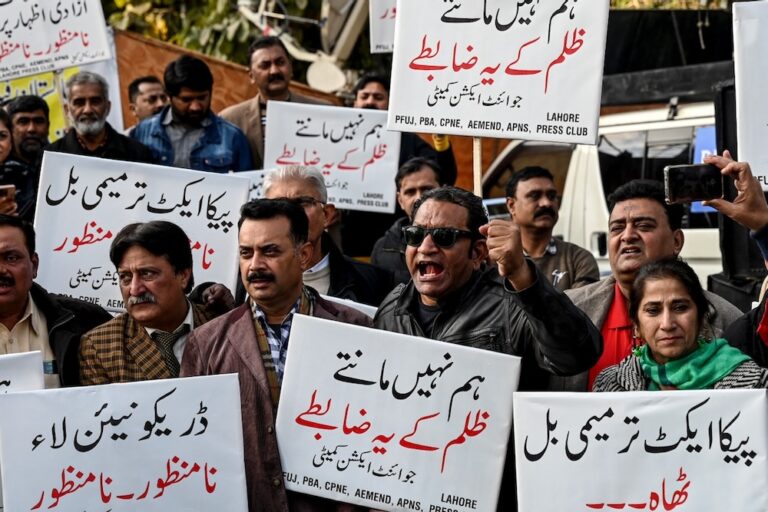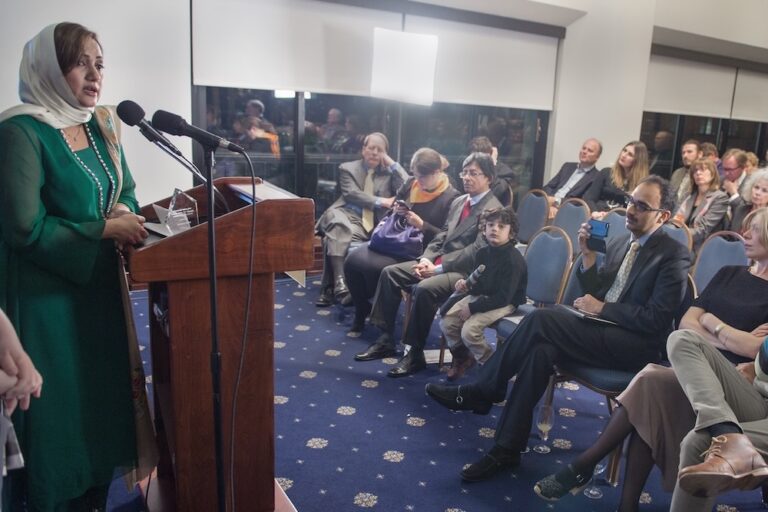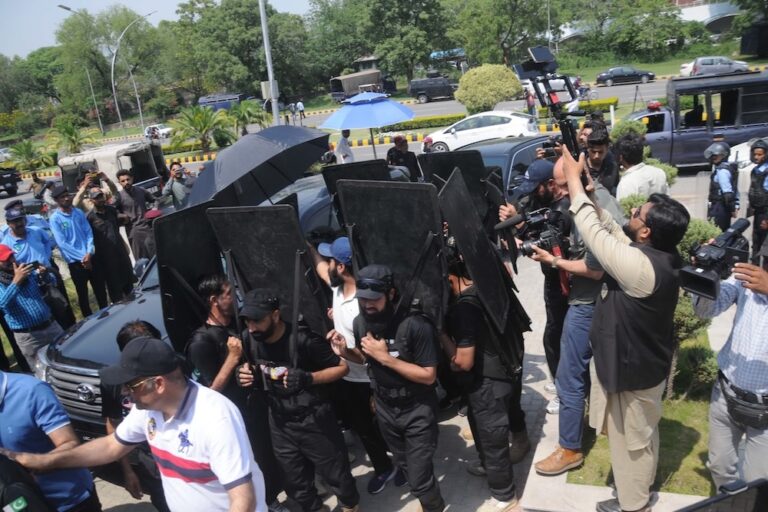Pakistani authorities are urged to fully investigate journalist Haji Abdul Razzak's disappearance and barbaric murder in order to establish the motive and determine whether it was linked to his work as a journalist.
The mutilated body of Balochistan-based journalist Haji Abdul Razzak was identified by his family on 22 August 2013, one day after it was found in Karachi, Pakistan’s business capital. Missing since 24 March, Razzak was tortured to death.
“We urge the Pakistani authorities to fully investigate Razzak’s disappearance and barbaric murder in order to establish the motive and determine whether it was linked to his work as a journalist,” Reporters Without Borders said.
“Journalists in Balochistan and the Tribal Areas are constantly the targets of intimidation and violence, and the impunity enjoyed by those who murder them just sustains this climate of terror. The authorities must end it at once by pursuing this investigation to its conclusion.”
As well as working for the Balochi-language daily Tawar, Razzak was linked to a Balochi political party. The investigation must determine whether either of these activities was linked to the motive for his appalling murder.
Razzak’s body was found alongside another mutilated body. His family was contacted on 22 August but took 24 hours to identify him because the body was so badly mutilated that only the arms and legs were sufficiently intact to enable identification.
Four other Balochi journalists have been killed this year. Imran Shaikh, Saifur Rehman and Mohammad Iqbal were killed in a double bombing in Quetta on 10 January. Mehmood Ahmed Afridi was gunned down by men on a motorcycle in Karat on 1 March.
If it turns out that Razzak’s death was linked to his work, it would bring to seven the number of journalists killed in 2013 in Pakistan. One of the world’s deadliest countries for media personnel, Pakistan is ranked 159th out of 179 countries in the Reporters Without Borders press freedom index.
Attack on TV reporter’s home in Waziristan
On 19 August, Reporters Without Borders condemned a shooting attack on a building that houses two daily newspapers and a TV station in the southern business capital of Karachi on 16 August, and a bomb attack on TV reporter Zafar Wazir’s home in South Waziristan, in the northwestern Tribal Areas, on 11 August.
“We are shocked by these attacks, which were clearly designed to reduce journalists to silence,” Reporters Without Borders said. “The investigation that the prime minister has ordered into the Karachi attack must be pursued until the end in order to identify those responsible and bring them to justice.
“We also call for a full investigation into the bombing of Zafar Wazir’s home. The authorities need to respond appropriately to the climate of violence to which journalists are exposed throughout the country and, in particular, in Waziristan and the other Tribal Areas. Effective measures are needed to combat the spread of such acts of violence.”
[ . . . ]
The bomb that exploded outside Zafar Wazir’s home in Wana, in South Waziristan, on 11 August destroyed the front door and badly damaged three rooms but caused no injuries.
“Fortunately, no member of my family was hurt by the explosion,” he told Reporters Without Borders. A reporter for Khyber News, a Pashtun-language TV station and a member of the Tribal Union of Journalists, Wazir said he thought the bombing was linked to his journalistic work because he had no personal enemies.
“Three or four days before the explosion, I did several stories for Khyber News about alleged corruption and the lack of medical care establishments in Wana and the surrounding areas and these stories may have upset some people,” he said, without accusing either the government or any Taliban group.
As a result of the bombing, Wazir has decided to relocate to Peshawar for safety reasons.
Wazir previously left South Waziristan along with many other journalists in 2004, when Taliban violence was on the rise in the province, and subsequently based himself in Dera Ismail Khan, a district on the South Waziristan border.
Two journalists, Amir Nawab and Allah Noor, were killed in an ambush on a vehicle carrying a group of reporters to Wana on 7 February 2005 to cover a Taliban warlord’s surrender.
A total of six journalists have been killed since the start of 2013 in Pakistan. They include Malik Mumtaz Khan, who was gunned down in Miranshah, in North Waziristan, on 27 February.
Pakistan’s intelligence agencies, the various armed groups in the southwestern province of Balochistan and the Taliban leader, Mullah Omar, are on the 2013 Reporters Without Borders list of Predators of Press Freedom.


